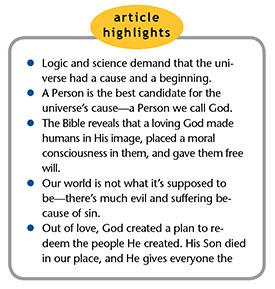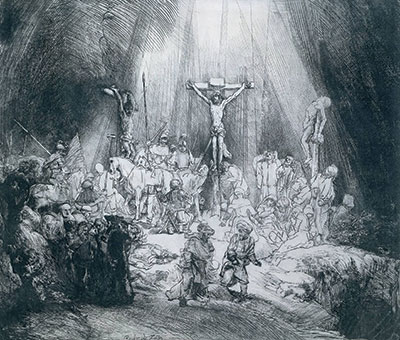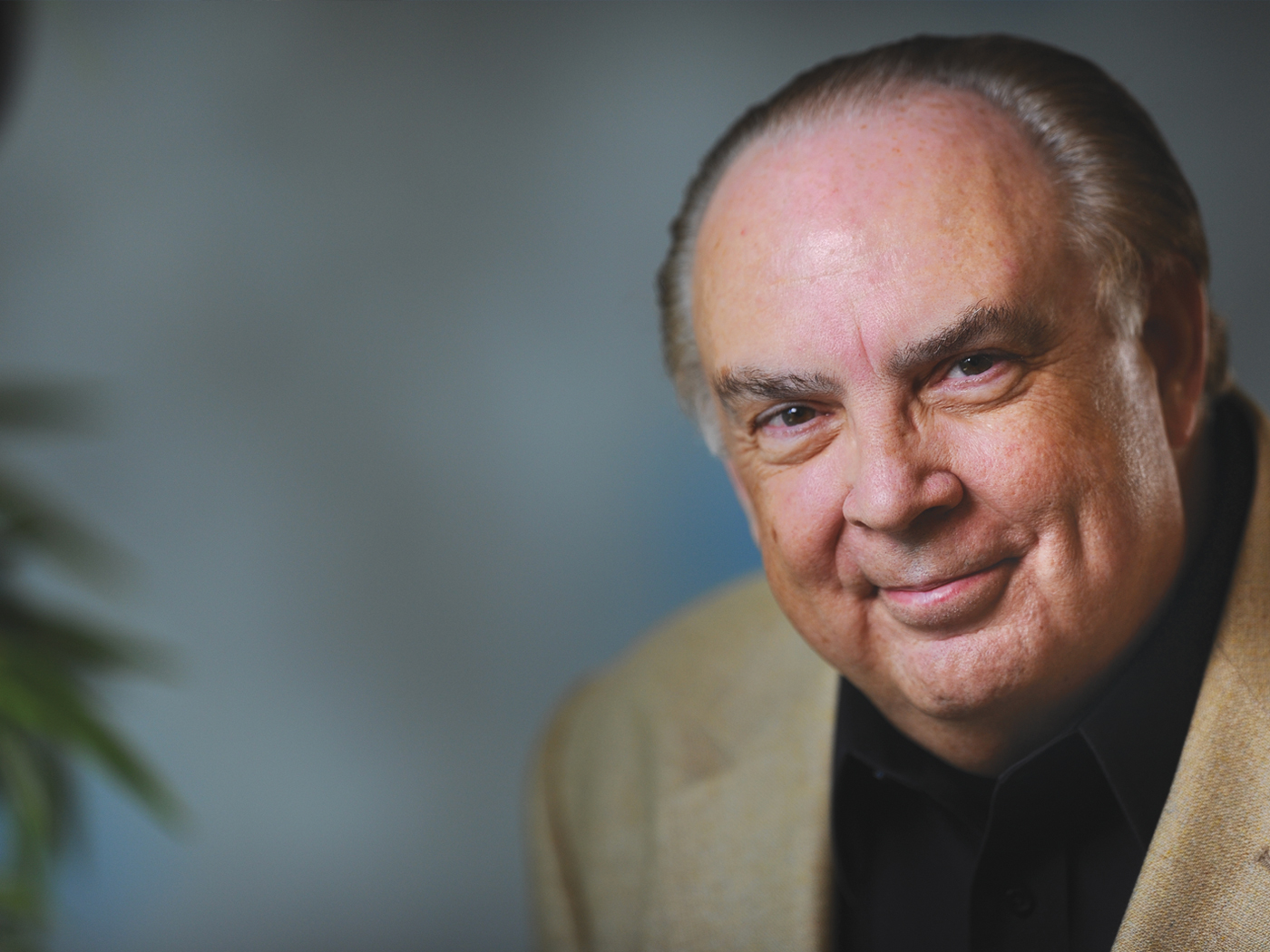 Maybe you’ve been skeptical about the claims of Christianity. You’ve thought the glorious hope of the Christian is just built on wishful thinking. But for the time being shelve whatever objections you may have until you’ve carefully and fairly considered the evidence.
Maybe you’ve been skeptical about the claims of Christianity. You’ve thought the glorious hope of the Christian is just built on wishful thinking. But for the time being shelve whatever objections you may have until you’ve carefully and fairly considered the evidence.
The Origin of the Universe
It’s certain the universe had a definite beginning. Some compare the universe to a clock that’s running down. The Second Law of Thermodynamics states that every energy change or transfer must be in a downward direction as far as the usability of the energy is concerned. Every man-made mechanical device delivers less energy than it receives, the remainder being dissipated in unrecoverable heat energy. The same principle applies throughout all nature. Suns and stars continually send out tremendous quantities of energy, most of which is lost in space.
This can’t go on forever. Either the universe must eventually die a “heat death” or some unknown principle or person must intervene to renew it. This can’t have been going on forever in the past. There must have been a beginning when the universe was much more highly charged with energy in a high degree of availability than it is now.
As to who or what began it, there are only two alternatives. Some eternally existing law, principle, or force—something intrinsic in matter and the universe about whose origin we can know nothing—somehow shaped things into their initial form and then set them to following out a deterministic process of development, or rather degeneration. Or all things were created in the beginning by a Person, also about whose origin we know nothing. It comes to this—the universe began either by a Person or by something without personality.
But if the law of cause and effect means anything, the universe could only have been brought into existence by a cause adequate to account for every thing, every concept, every character exhibited by the universe. It’s axiomatic that the effect can’t be greater than the cause. A cause must have at least all the characters of the effect it produces. How, then, could it be possible to produce intelligence, feeling, emotion, will—in short, to produce personality—if the cause isn’t itself possessed of personality?
Some deny or question the applicability of the law of cause and effect when applied to questions of origins. Such speculations are completely divorced from the world of reality, a world in which cause and effect operate and in which logical reasoning based on correct premises leads to correct conclusions. Therefore, the only reasonable conclusion is that the universe and everything in it was created by a great personality—a Person we call God.
One further conclusion comes easily. There’s something in us we call a conscience or a moral urge. Each individual recognizes something in himself that tells him he ought to do the thing that is right and shun the wrong—even though individual standards as to what constitutes right and wrong may seem to vary with time and place. As far as personalities are concerned, it is a moral universe. Therefore, the Creator must be a moral being who has placed in His creatures a moral consciousness, and this consciousness of moral values implies a moral responsibility to the Giver of that consciousness.
Thus, it’s reasonable and necessary to believe in a personal God who has created and sustains the universe. As the highest of His creatures, humans also have personality. They have intelligence to comprehend an intelligent universe, possess a moral sense that they intuitively realize implies a moral responsibility to God, a will that enables and impels them to make moral choices, and emotional capabilities for love, hate, joy, sorrow, anger, and peace—which emotions must be related to their moral nature and relation with God.

Humanity’s Purpose and Destiny
It’s believed by most that the highest emotion, the noblest feeling, is love. If love really prevailed among people and nations, there’d be no war, crime, or want. God has evidently placed the capacity to love and the desire for love at the center of our personalities. Love must likewise be at the very heart of the personality of God. We may find it difficult to reconcile evil and suffering with God’s love, but surely the real presence of love, goodness, and beauty in the world and the instinctive recognition of all people that these things are better and more desirable than evil and hatred should satisfy us that God is a God of love.
Because of these facts, the creation of humanity is intimately connected with God’s nature of love. It’s clearly conceivable that God created people in His own spiritual likeness in order that He might have someone on whom to lavish the love flowing from His own nature, someone who would freely reciprocate that love.
Humanity’s chief purpose, then, is to love and to be loved by God. This is a logical and the most ennobling explanation of the existence of love in the universe and in individuals.
God’s love, however, cannot be exercised at the cost of His holiness, righteousness, and justice. There can be no possibility of an infinitely holy Creator allowing evil to go overlooked or unpunished. But the possibility of wrong entering the universe and thriving for a time can’t be doubted. There is much evil and suffering in the world. Therefore, we must concede that somehow in His creation there exists the possibility of unholiness and sin.
It’s difficult to think of good except in opposition to bad, of truth except as against falsehood, of holiness except as contrasted with sinfulness. The good qualities can mean nothing unless freely chosen and exhibited in preference to the bad. A properly designed machine deserves no credit and elicits no love for dependably doing what is expected of it; it has no choice in the matter.
If humanity’s chief end is to love God—and to satisfy the longing of the God of love for the love of creatures in His own image—there must obviously be real moral freedom on the part of people to exercise that love. Otherwise, they would be mere pieces of machinery, and God would derive no satisfaction from an involuntary love. Indeed, such a love is a contradiction in terms.
Moral freedom involves the possibility of a wrong moral choice, of hate or indifference instead of love, of doubt instead of faith, of a desire for independence from God rather than a loving trust in Him. That such a wrong choice has been made by humanity, and by all individual people, can’t be doubted.
Here’s the explanation for our lack of knowledge of the person of God and our lack of fellowship with Him. We have chosen wrongly, and His holiness cannot permit fellowship with sinners. We have, of our own volition, rejected His proffered love and righteousness, for independence and sin, and have therefore prevented Him from exercising His love toward us. Our sins separated us from our God, and there’s no way of our undoing them or starting over. We can’t call back all the lies, the cursings, the bitter words that have escaped our lips, nor can we unthink all the evil thoughts or undo the evil deeds we’ve been guilty of and that have continued to pain the heart of God. We seem to be, because of sin, completely and eternally lost from God’s presence and His plan for us.
God’s Plan of Redemption
 It’s not possible that God would leave His creatures in this condition without doing something to make possible a restoration. He, being omniscient, must have foreseen before the beginning of the creation all that’s taken place. He created humans to love and to be loved, and it’s inconceivable God could fail in His purpose. Accordingly, He must have planned from the foundation of the world to work out a plan of redemption for lost humanity.
It’s not possible that God would leave His creatures in this condition without doing something to make possible a restoration. He, being omniscient, must have foreseen before the beginning of the creation all that’s taken place. He created humans to love and to be loved, and it’s inconceivable God could fail in His purpose. Accordingly, He must have planned from the foundation of the world to work out a plan of redemption for lost humanity.
But it’s almost impossible to conceive of a method that would do everything necessary and still be consistent with God’s character. This plan must be one that would reveal God’s holiness to people and make them desire holiness and hate sin. It must be something that would completely remove all the effects of sin. Above all, it must be something that would change the desires and affections of people in such a way that they would no longer be in a condition of rejection of God’s will and His love but would have their love and gratitude drawn out to Him as His love is revealed to them. We can think of one way, but we couldn’t have thought of it had not God revealed it to us.
God, though infinite, might take upon Himself the form of a human, might be made part and parcel of humanity. By a thoroughly human life, He then might exhibit in Himself His own holiness and love in a way that people could understand. The staggering burden of the sins of humanity, of which He then would be a part, would press upon Him, more and more coming into conflict with His nature. He might then allow Himself to bear the weight of all the sins and resultant suffering of all people, ultimately to experience and endure the inconceivable awfulness of hell—to endure what people who’ve rejected the love and fellowship of God deserve to suffer, the complete absence of that love and fellowship, the presence of nothing but sin, completely forsaken of God.
As yet, we do not realize what it will mean to be completely and eternally cut off from all the evidences and effects of the presence and love and care of our Creator, but such complete separation is the logical result of our rejection of His love and must eventually be the fruit of what we have sown. But, if God Himself were to undergo in substitution all this suffering for us, may we not be set free and restored to our lost estate?
This becomes more evident when we remember that God desires to draw our love to Himself, to enjoy our love. There’s nothing conceivable that could so make a person love God—a person who has sinned and is lost from God and can do nothing about his sinfulness—as for that person to know that God Himself has borne and suffered for and carried away his sins.
When someone rightly views his own lost condition but then sees God going to such lengths to save him, his whole being must surely be changed. He can and must love God with all his heart and soul. He must be eternally grateful to Him. He must come to love the things God loves and hate the sin that had separated him from God.
It’s the infinite God suffering for finite people. And though His suffering under such circumstances may have been infinite, it couldn’t be eternal. He who is the Maker of life, He who is Life, couldn’t die forever. When His soul is once made an offering for sin, He must prolong His days; He must be alive forevermore.
These thoughts don’t fully explain everything about God’s plan of redemption. It’s too much, too great, too grand for us to comprehend. But at least we’ve seen it’s reasonable to believe that God must have taken this course of divine substitution for sinful humanity. No other plan could accomplish God’s purpose for people, be consistent with His own character of holiness and love, and satisfy His own heart.
Shouldn’t we, when God’s person and plan are revealed to us by His own revelation and by history, open our hearts to Him, love Him, and serve Him forever? And as our hearts open to His love, isn’t it possible that all the beauty of His holiness and all the power of His resurrection life become ours?
The Revelation of His Plan
It’s possible and reasonable that God could reveal His plan of redemption to people. In fact, it’s necessary, since the only course God could follow is incomprehensible to people unless divinely revealed. Still, God mustn’t force the acceptance of it. He desires real love, voluntary love. Not only are His character and His creation now available to elicit such love, but also His marvelous provision of salvation from the penalty and power of sin. This must be revealed to people, but only in such a way as to encourage faith and love, not to force them.
Accordingly, God has revealed this plan to people in some definite way, but not in such a way as to be beyond doubt. There must be either the promise of His plan to be worked out, or the record of His plan having been worked out, or both—and they must now be available to all those who desire to know God and to be restored to His fellowship.
We can be satisfied that none of the religious or philosophical systems of the past, now dead, were true revelations of God. Had they been, God wouldn’t have allowed them to die out. Similarly, we can infer that none of the purely local or national religions are true revelations of God. All people need to know it, and therefore the true religion must be missionary.
Besides Christianity, only Buddhism and Islam meet even these two qualifications. It is evident that only one of these can be God’s true revelation because each is radically different from the others, especially in the all-important matter of the way of salvation. Buddhism emphasizes good works as the means of salvation. There’s nothing in it to draw out someone’s love toward his Creator and Redeemer. The Muslim conception of God is somewhat similar to that of Christianity, but the incentive to obey Him is not that of love for Him but rather fear of hell and the promise of a very sensual paradise to the faithful follower of Mohammed.
Neither Buddhism nor Islam knows anything of the saving grace of God, nor of obedient love in response to that grace. Christianity has spread around the world as a result of neither force nor compromise but through the transformed lives and the loving testimony of those who have believed that “God was in Christ reconciling the world to Himself” (2 Corinthians 5:19).
God gives each of us the privilege and the necessity of making the choice as to which course we want to follow. His love has given its ultimate expression in order that His holiness may be vindicated. Every individual in the world can be freely and forever saved if he wants to be, if he wants to know God and love and serve Him.
What you should do right now is bow before God and thank Him for His great love, receive the Lord Jesus as your eternal Savior and King, then confess Him before others and seek henceforth to love and live for Him. “If you confess with your mouth the Lord Jesus and believe in your heart that God has raised Him from the dead, you will be saved” (Romans 10:9).
Adapted from Dr. Morris’ tract “Reason and the Christian Hope: Can We Know That Christianity Is True?” published by the Institute for Creation Research in 2005.
* Dr. Morris (1918-2006) was Founder of the Institute for Creation Research.





















